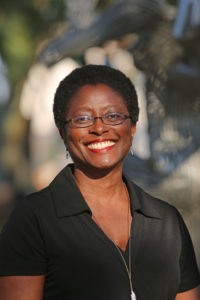Rigor. That’s a word we rarely hear. It usually lumbers into conversation alongside something dreaded, like death or school work. As soon as it shows up, people leave with vague promises to catch up later. Yet, it’s the very thing writers need to hear. Every successful writing life depends on it.
The Rigorous Road
Everybody’s heard of that one writers’ group member. The one who writes the same poem/short story/novel over and over. Over the years, their work never deepens or develops past the greeting card stage. They’re stuck. While there could be a number of reasons — fear, ignorance, etc. — for their stasis, one culprit is lack of rigor in their writing life.
Rigor is the work (as well as the quality of that work) you invest in learning a skill and gaining mastery over it. Here’s what that means in real time; it takes 20 hours to learn a new skill and 10,000 hours to master it.
Sounds daunting, doesn’t it? I won’t gloss over the effort a mature writing life takes. It requires exactitude, thoroughness, and a methodical approach.
Mapping the Way
I apologize for misleading you a bit here. Sadly, I know of no single step-by-step map to incorporating rigor into your writing life. However, here are key parts to get you started. Instead of focusing on becoming a better writer, methodically work on a specific process goal. Ultimately, all process goals lead back to your original goal better writing.
Choose a specific process goal
Such as improving dialogue skills. Track your progress using tools which suit your writing practice. I use Google Docs; I find the simpler, the better works for me. Some writers prefer spreadsheet programs and other specialty apps.
Research
Compile a list of best practitioners from librarians, critics, and other authors as well as your own favorites. Analyze how the experts’ work differ from each other and your own. Make notes on your impressions and any memorable writing excerpts. Make a list of the books and articles you read.
Write
Use elements of the experts’ work in producing your own. Record what techniques spurred your imagination, how much you write, and the frequency of writing.
Quality control
The underlying goal is to improve your writing. Choose critique partners and beta readers to act as quality control. Their editing and feedback helps to illuminate your weak spots and strengths.
Compass Points
Use your writing faults, gifts, and curiosity as the lens to direct your goals
If dialogue is your achilles heel, delve into the novels of Elmore Leonard and Jen Frederick. Your descriptions are lyric masterpieces, so revel in Erin Morgenstern and Jonathan Safran Foer.
Read (and write) with increasing complexity
Stretch your reach; read outside your comfort zone. If you usually read cozy mysteries, pick up a sci-fi short story collection. If romances dominate your reading time, read across the romance spectrum from Amish to shape shifter, historical to sci-fi and beyond. Read romances written by women of color. Pick up an asexual romance.
Experiment with different writing forms
Check out other genres such as ghazals, 10-minute plays, creative nonfiction, and songwriting.
Don’t neglect the role serendipity plays in the writing life
Collect the things that make you curious. Your collections need not be physical; snapshots and recordings easily serve as keepsakes. Stay open to the unexpected — meeting a new writer, an invitation to collaborate, or an intriguing new topic.
Companions for the Journey
Any new endeavor generates questions. A safe place to ask is a necessity.
College courses and writing workshops encourage participants to ask questions in and outside of class hours. However, many of us can’t quite fit a semester-long class or intensive workshop into our budgets or schedules.
This is where writing groups — in-person and online — shine. Most groups have members across the spectrum from newbie to professional writers and published authors.
I belong to two Facebook writing groups: “The Write Life Community and Writer’s Digest Community Discussion & Critique. The Write Life group, run by TheWriteLife.com, is a public Facebook group with 18,175 members. The Writer’s Digest group is a closed Facebook group but membership requests are evaluated and approved within 2 business days. It has 641 members. In both, questions are responded to quickly by multiple members to provide a well-rounded answer.
Sometimes it’s best to be one of a crowd and try new things with other newbies. My library writing group explores writing outside members’ usual genres. The group has hosted songwriting workshops and poetry open mics, as well as talks on fan fiction and the importance of memorization on writing.
Another way to get answers is DIY MFA’s newest column, Ask the Editor, written by Elisabeth Kauffman. The Q&A column addresses “the nuts and bolts of the craft, the wit and whimsy of imagination”.
Rigor doesn’t have an expiration date. You never outgrow the necessity (or desire) to be a better writer. I won’t promise you’ll be the best writer in the world if you take a rigorous approach to writing. But I can promise you’ll become the best writer you can be.
 Brenda Joyce Patterson is a poet, writer, librarian, and lover of short writing forms. Her poetry and flash fiction have been published in Vayavya, Gravel Magazine, and Melancholy Hyperbole. Along with works by Maya Angelou, Gwendolyn Brooks, and Alice Walker, her travel essay “The Kindness of Strangers” appeared in Go Girl: The Black Woman’s Guide to Travel and Adventure.
Brenda Joyce Patterson is a poet, writer, librarian, and lover of short writing forms. Her poetry and flash fiction have been published in Vayavya, Gravel Magazine, and Melancholy Hyperbole. Along with works by Maya Angelou, Gwendolyn Brooks, and Alice Walker, her travel essay “The Kindness of Strangers” appeared in Go Girl: The Black Woman’s Guide to Travel and Adventure.







